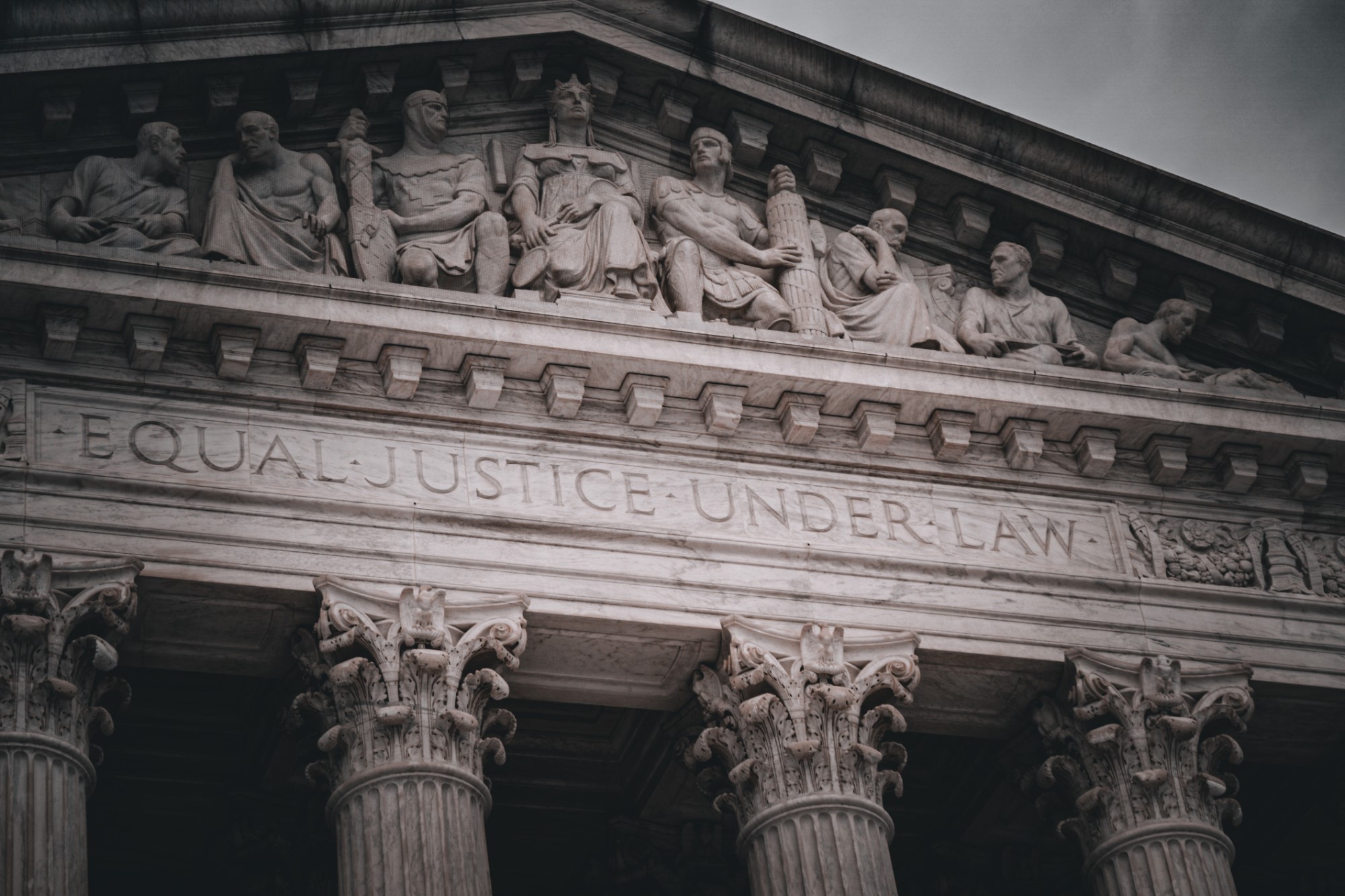Be On Your Best Behavior: On Lifetime Judiciary Appointments

In my previous column, I considered President Joe Biden’s arguments for limiting the terms of U.S. Supreme Court justices. Of the three arguments, only the view that no single presidential term should have disproportionate impact on the Court showed immediate promise. Although, after unpacking the likely justification of this view, I argued that accepting it may require viewing the Supreme Court as a political institution. This result should give us pause as a politically neutral high court is a desirable thing.
Lifetime tenure is the status quo in the U.S. But this mere fact does not automatically make it desirable. Humans tend to favor the current state of affairs, even if there is an advantage to departing from it. So, we ought to consider arguments which can be marshaled in favor of indefinite terms for Supreme Court justices. If these arguments are not compelling, then perhaps the arguments for term limits will gain appeal, simply by virtue of being a better, albeit potentially flawed, option.
The most influential arguments for lifetime judicial appointments in the U.S. come from Alexander Hamilton in Federalist 78, first published in 1788. This paper is part of a collection now commonly called the Federalist Papers, a series of essays in which Hamilton, James Madison, and John Jay sought to offer public arguments defending the various features of the then new United States Constitution, hoping to help ensure its ratification. Each essay offers some defense of a particular aspect of the newly proposed federal government.
In Federalist 78, Hamilton defends the structure of the judiciary. Among those features he wishes to defend, Hamilton argues in favor of lifetime appointments for the justices, using the language of “hold[ing] their offices during good behavior” adopted in Article III of the Constitution to describe this tenure.
He offers three major arguments to defend the judiciary. First, the Supreme Court is the least dangerous of the three branches of government. Second, few people in society will acquire the knowledge and skills necessary for a successful tenure. Third, that lifetime appointments are necessary to secure the independence of the judiciary.
In describing the power of the Supreme Court, Hamilton writes that “The judiciary… has no influence over either the sword or the purse; no direction either of the strength or of the wealth of society; and can take no active resolution whatever. It may be truly said to have neither FORCE nor WILL, but merely judgment.” So, Hamilton’s position is that the Supreme Court lacks power. In his view, all it can do is interpret the Constitution. Further, it has no ability to enforce the decisions that it reaches. The Supreme Court effectively requires compliance from the executive and legislative branches. As Andrew Jackson is often and perhaps apocryphally quoted, “John Marshall has made his decision, now let him enforce it.”
Ultimately, Hamilton thinks that we as citizens have little to worry about from the judiciary. He claims that “though individual oppression may now and then proceed from the courts of justice, the general liberty of the people can never be endangered from that quarter… so long as the judiciary remains truly distinct from both the legislature and the Executive.”
Of course, things have changed significantly since the late 18th century. All branches of the federal government, and the United States as a whole, have much greater power than the founders anticipated. In fact, just 15 years after Hamilton’s death, the Supreme Court ruled that the federal government has powers not explicitly granted to it by the Constitution.
Additionally, the Supreme Court has often reshaped the lives and rights of Americans simply by interpreting the Constitution. Since just the mid-20th century, the Supreme Court ended racial segregation, guaranteed the right to a defense attorney for those who cannot afford one, declared laws against interracial and same-sex marriagesunconstitutional, established a Constitutional right to privacy, then used that right to conclude access to birth control and abortion are Constitutional rights, as well as that criminalizing sexual acts between consenting adults is unconstitutional. They have since walked back at least some of these decisions and may do the same for others.
The Supreme Court certainly lacks the power of the executive and the legislative. They cannot make the law and they cannot enforce it. However, their ability to interpret both individual laws and rights guaranteed by the Constitution has the potential to greatly impact the lives of millions, if not all, Americans. Thus, Hamilton’s argument misses the mark in the 21st century. Although arguably not the most powerful branch, the Supreme Court may reshape features of our lives.
Second, Hamilton notes that there are few who can meet the qualifications of being a justice. He writes that “a voluminous code of laws is one of the inconveniences necessarily connected with the advantages of a free government. To avoid an arbitrary discretion in the courts, it is indispensable that they should be bound.” Further, Hamilton notes that “the records of those precedents must unavoidably swell to very considerable bulk and must demand long and laborious study to acquire a competent knowledge of them.” So, Hamilton thinks that few can both develop the skill and character necessary to serve as a justice. There’s simply a lot to learn.
One might, however, wonder if Hamilton’s views here may be a product of the era in which he lived. As described by Jay Alexander, 18th century lawyers typically began practicing law by apprenticing. However, their mentors frequently traveled for trials, leaving apprentices to simply read legal books for weeks or months at a time without any guidance. Under these conditions it is no surprise that it was incredibly difficult to gather the knowledge to practice law, let alone become highly proficient in it. Yet things are different in the 21st century. According to the American Bar Association, there are more than 1.3 million practicing lawyers in the United States as of 2023. For reference, the U.S. population according to the 1800 census was 5.3 million. Of course, most Supreme Court justices are typically justices prior. But many simply had prior legal expertise and worked in careers other than judging preceding their appointments.
It is true that justices ought to be individuals of great knowledge, experience, and character. Yet given the sheer number of individuals with legal training, it is not clear that there are only nine people capable of serving as a justice on the highest court at any moment. So, this does not seem to offer compelling reason for why justices ought to have lifetime appointments. Of course, the U.S. legal code has gotten significantly more complicated since the 18th century. But we are significantly better at training, and produce significantly more, people capable of practicing law.
Finally, Hamilton argues that lifetime appointments judiciary appointments are necessary to preserve the independence of the court, which is required to fulfill their function. He writes “that inflexible and uniform adherence to the rights of the Constitution, and of individuals, which we perceive to be indispensable in the courts of justice, can certainly not be expected from judges who hold their offices by a temporary commission.”
His rationale is this. Suppose that judges serve limited terms. Presumably, they could be reappointed to the bench. If this is the case, it may bias the judgments of those judges. Rather than making rulings which best fit current law, justices may instead rule in ways which please the executive and legislative branches; the executive branch nominates the justices, and the legislative branch confirms them, so making rulings to please both may go some way towards securing future appointments for justices. Additionally, when discussing the limited power of the judiciary, Hamilton does note that a judiciary aligned with another branch of government creates a great potential for despotism; this has borne out in the 20th century as authoritarian regimes have sought to push out justices appointed by prior leaders and stack the court with loyalists.
Further, we can extend Hamilton’s argument. He focused primarily on justices’ relationships to other branches of government. However, even if justices can serve only one term, they may still have concerns about their future off the bench. Perhaps a concern about their future could lead them to favor corporate or moneyed interests in their final years. After all, a corporate plaintiff or defendant could need a well-compensated legal consult in the near future. We might find this possibility especially troubling since the Court recently ruled that federal anti-bribery laws do not cover gratuities, the gifts or other forms of showing appreciation given after a public official has taken an action.
This argument seems powerful on its face. We should certainly worry about justices focusing on their future careers rather than remaining independent, impartial interpreters of law. Yet consider the number of scandals regarding the politicalaffiliations of justices and their families, as well as significant personal and financial conflicts of interest. It seems currently that lifetime appointments are not sufficient to counteract the ways in which the justices’ interests, political, personal, or financial, may affect their rulings. The salary and the prestige of the position may not be enough for those individuals ambitious enough to rise to such a high rank.
So perhaps we need to emphasize the way in which Hamilton and the framers of the Constitution described the tenure of justices. Federal justices are not explicitly given “lifetime appointments.” Instead, their tenure is described as lasting throughout “good behavior.” Rather than overhauling the Court, perhaps the solution is simply to hold the justices to that standard. We should demand they at least attempt to be impartial, to avoid even the appearance of conflicts of interest, and step aside from those cases when we have reason to believe their judgment may be biased. If their tenure is to only last during times of good behavior, then we ought to remove those justices unwilling to behave as those with a good judicial character would.
Of course, this requires legislating in good faith and seriously scrutinizing the behavior of even those justices whose rulings we find agreeable. But if we are to have an institution whose members are to interpret the law impartially, we must impartially hold them accountable.




